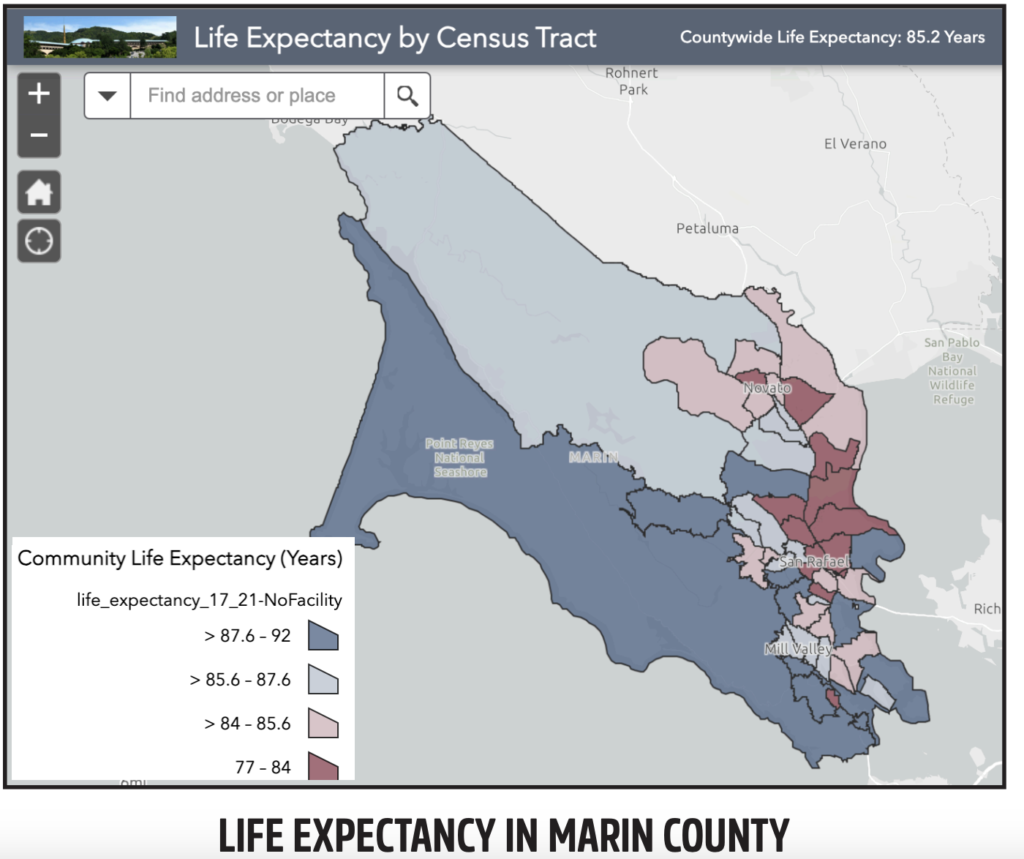Healthcare Impacts
Marin County is seen as the model of health in the United States, with life expectancies touching as high as 92 years in towns like Ross. That’s far higher than the national averages in the healthiest countries on earth, such as Japan or Switzerland! However, a closer examination shows that the affordable housing crisis is creating large cracks in our healthcare system. None of us are immune from the impact that housing costs are having on our health care.

Housing is foundational for good health.
Housing instability undermines our health: Rising rates of housing instability and homelessness greatly increase the risk of acquiring major health conditions such as hypertension, diabetes, heart failure, depression, substance abuse disorders, and mental illness. Evidence shows that having secure housing in well-resourced areas can increase life spans by over 25 years. As a result, it stands to reason that adding affordable housing would be a crucial means of addressing the fact that the average life expectancy of black residents in Marin is eight years lower than the life expectancy for white residents.
Our rapidly aging population is in particular danger: Marin’s already sizable senior population continues to grow, with our 65+ population skyrocketing by over 40% in the past decade. Seniors on fixed incomes are particularly vulnerable to rapidly increasing housing costs. Already, over one-third of our homeless population is above the age of 50. In its report criticizing Marin for the escalating homeless rate among senior residents, a Civil Grand Jury argued that “Stabilizing housing for older adults is the best way to spare them the pain, suffering, humiliation, and indignity of becoming homeless.”
Marin’s high cost of housing is reducing health access and limiting access to providers.
Healthcare workers can’t afford to live here: Healthcare professionals, from doctors and nurses to home-care workers, are choosing to take their careers elsewhere. For example, home-care providers recently protested at a Marin Board of Supervisors meeting over their lack of pay: they were making $18 an hour while the living wage here for a single adult is $32 an hour. Because of this, 10% of all requested care hours went unfulfilled in 2023 because many older residents struggled to find private caretakers willing to commute to Marin. And, as Marin’s growing senior and unhoused populations start to struggle with increasing health issues, these problems will only worsen; for instance, consider that the number of Marin residents with Alzheimers is projected to more than double by 2040.
As a result, our healthcare sector is understaffed and overburdened: The lack of affordable housing makes recruiting and retention difficult, increasing costs, lengthening wait times, and ultimately lowering the quality of care. Already, over 60% of Marin residents lack sufficient access to primary care providers.

